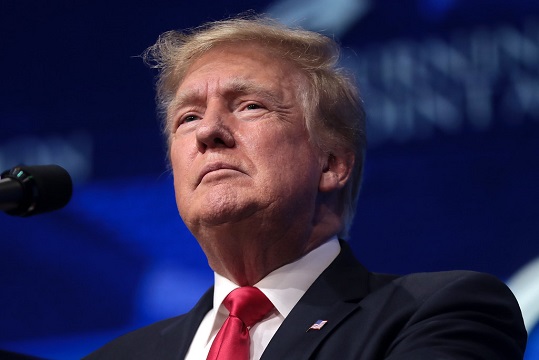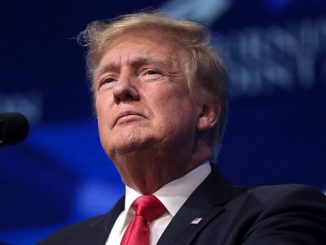
A federal appeals court has ruled that Donald Trump can be sued in civil court for his role in allegedly inciting the riot on Capitol Hill in January 2021.
It comes after two injured Capitol Police officers sued Mr Trump for telling the crowd to “fight like hell” shortly before the violence began.
Mr Trump had sought to claim immunity stemming from his role as president.
But the three-judge panel found that Mr Trump was not acting in an official role when he made the remarks.
Lawyers for Mr Trump had argued that he is protected from lawsuits related to anything he did as part of his official duties. The Supreme Court has previously ruled that presidents can only be held liable for anything falling beyond “the outer perimeter” of their responsibilities.
But the judges found that Mr Trump was acting as a candidate when he addressed the crowd, noting that he had produced no reason why the speech “should be treated more like the State of the Union than [a] campaign ad”.
“When a first-term President opts to seek a second term, his campaign to win re-election is not an official presidential act,” wrote Chief Judge Sri Srinivasan. “The Office of the Presidency as an institution is agnostic about who will occupy it next. And campaigning to gain that office is not an official act of the office.”
The judge added that a president “does not spend every minute of every day exercising official responsibilities”.
But the decision only finds that Mr Trump was acting outside his official duties at the time, and does not go so far as to say he should be found liable in the lawsuits.
Mr Trump can still argue in future cases that he was acting as president, not as a candidate. He could also challenge the ruling at the conservative-leaning US Supreme Court.
Nonetheless, the unanimous decision could pave the way for further lawsuits against Mr Trump over his part in allegedly inciting the violence.
A spokesman for Mr Trump told Politico that Friday’s ruling is “limited, narrow and procedural”.
The riot broke out as lawmakers were meeting inside Congress to certify President Joe Biden’s victory in the 2020 election. In the hours beforehand, Mr Trump had addressed a rally in Washington DC where he urged supporters to march to the Capitol.
“You’ll never take back our country with weakness,” he said at the time. “You have to show strength and you have to be strong.”
During the violence, at least 138 Capitol and Metropolitan Police officers were injured by rioters. Four police officers died from suicide in the months after the attack.
Capitol Police officers James Blasingame and Sidney Hemby subsequently filed lawsuits against Mr Trump for his actions.
The officers are seeking compensatory damages and an undisclosed amount in punitive damages from the former president, citing emotional and physical injuries.
“Today’s ruling makes clear that those who endanger our democracy and the lives of those sworn to defend it will be held to account,” Patrick Malone, a lawyer for the officers, said in a statement.
Mr Trump is currently leading the pack of Republicans seeking the party’s nomination for the 2024 election against Mr Biden.
Meanwhile, his legal problems continue to mount.
In his federal election meddling case on Friday, Judge Tanya Chutkan dismissed a motion to dismiss the case on the grounds of “presidential immunity”, ruling that he cannot be shielded from prosecution.
The previous day, the judge overseeing Mr Trump’s New York civil trial reinstated a gag order banning him from making disparaging comments about court staff.
In Georgia – where Mr Trump and others are facing racketeering charges for allegedly conspiring to overturn the results of the 2020 election – his attorney on Friday said that any trial should be postponed until 2029 if his client wins the White House next year.
Source: bbc.co.uk






Be the first to comment